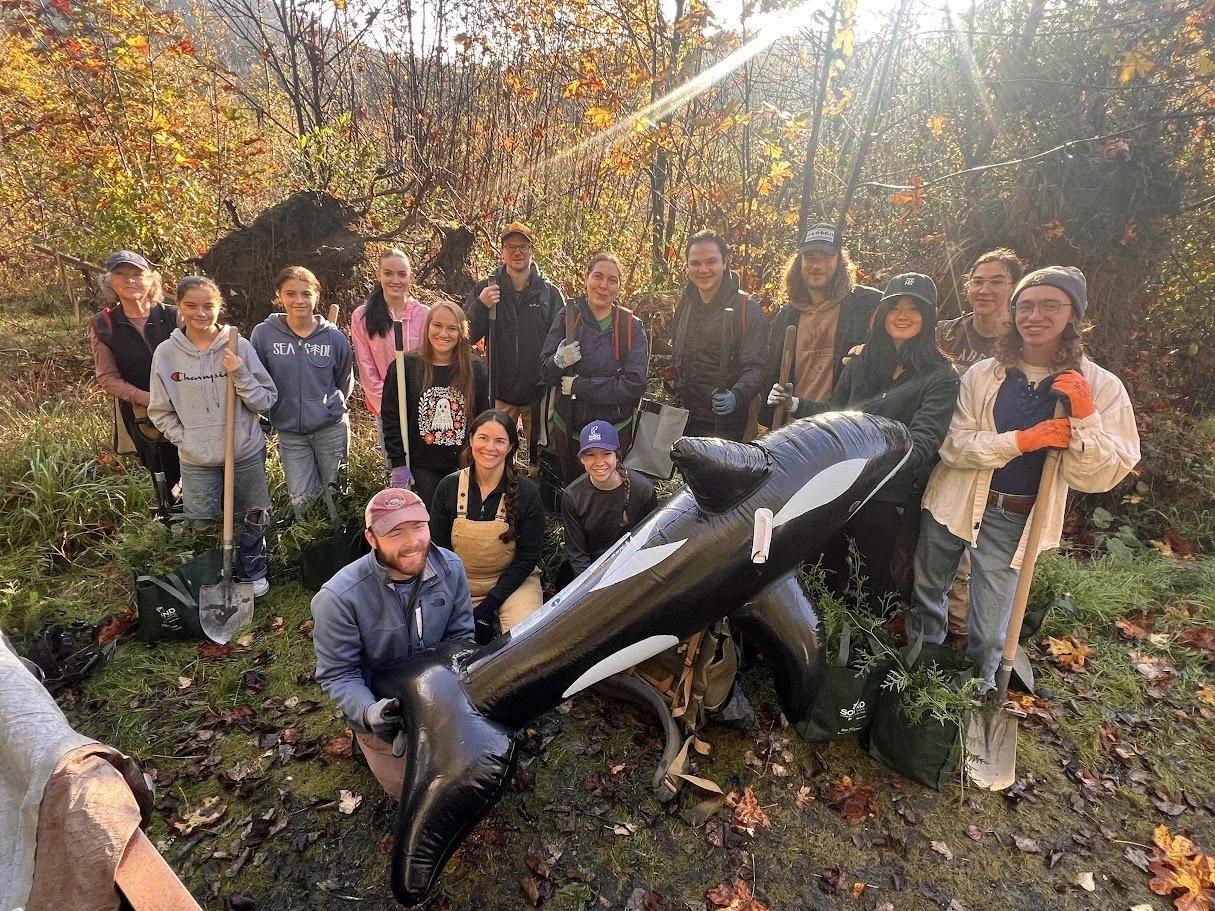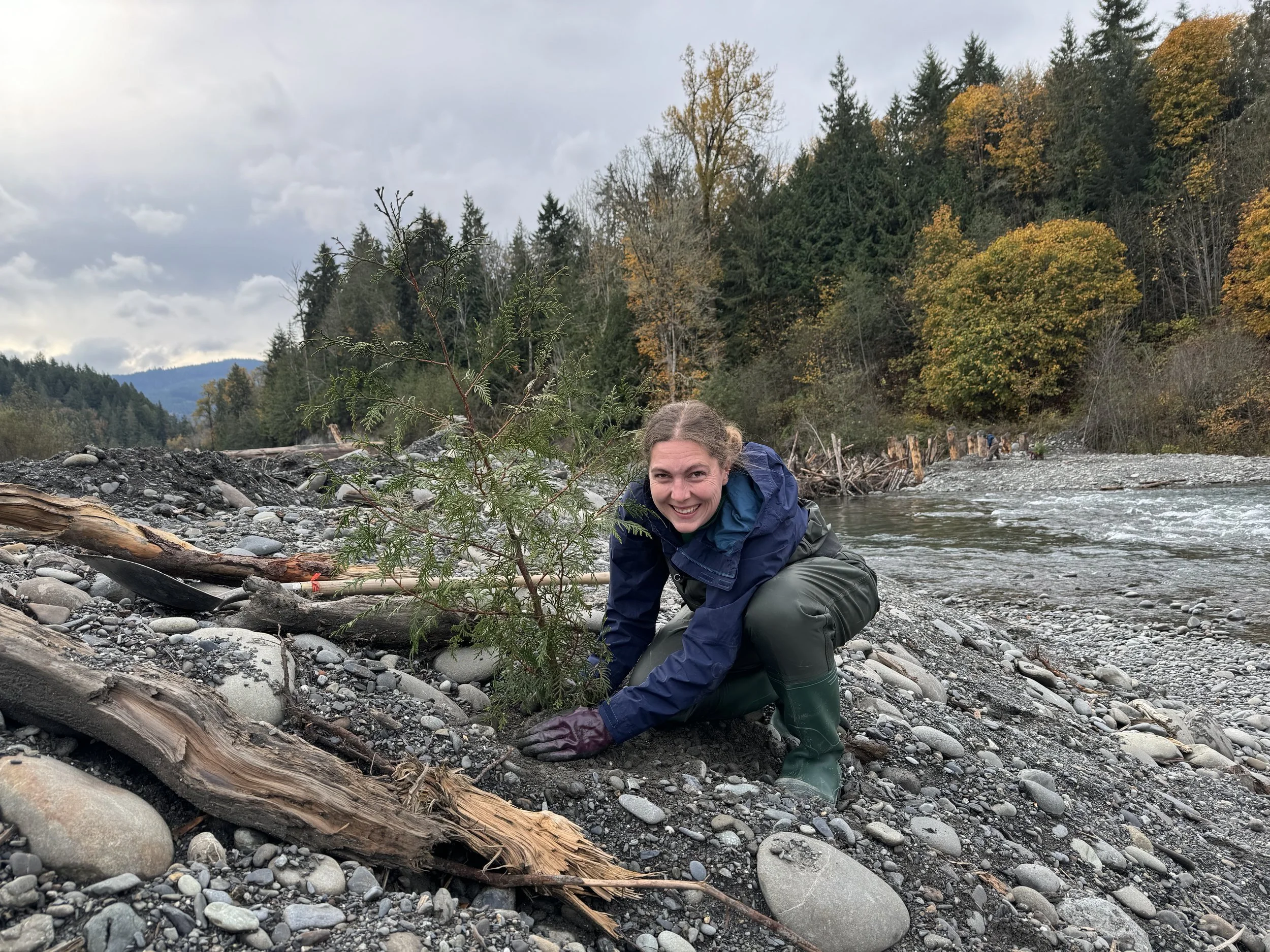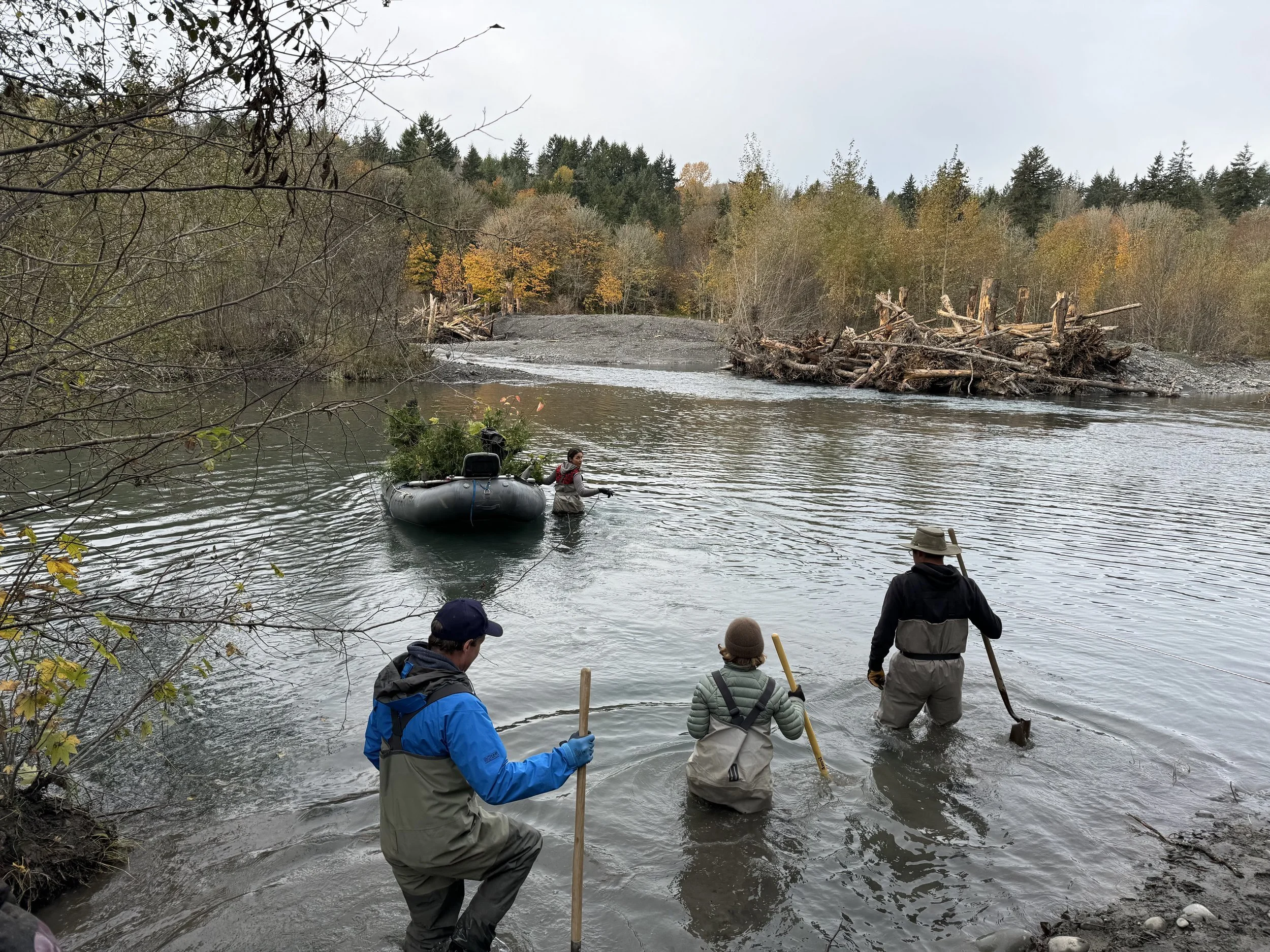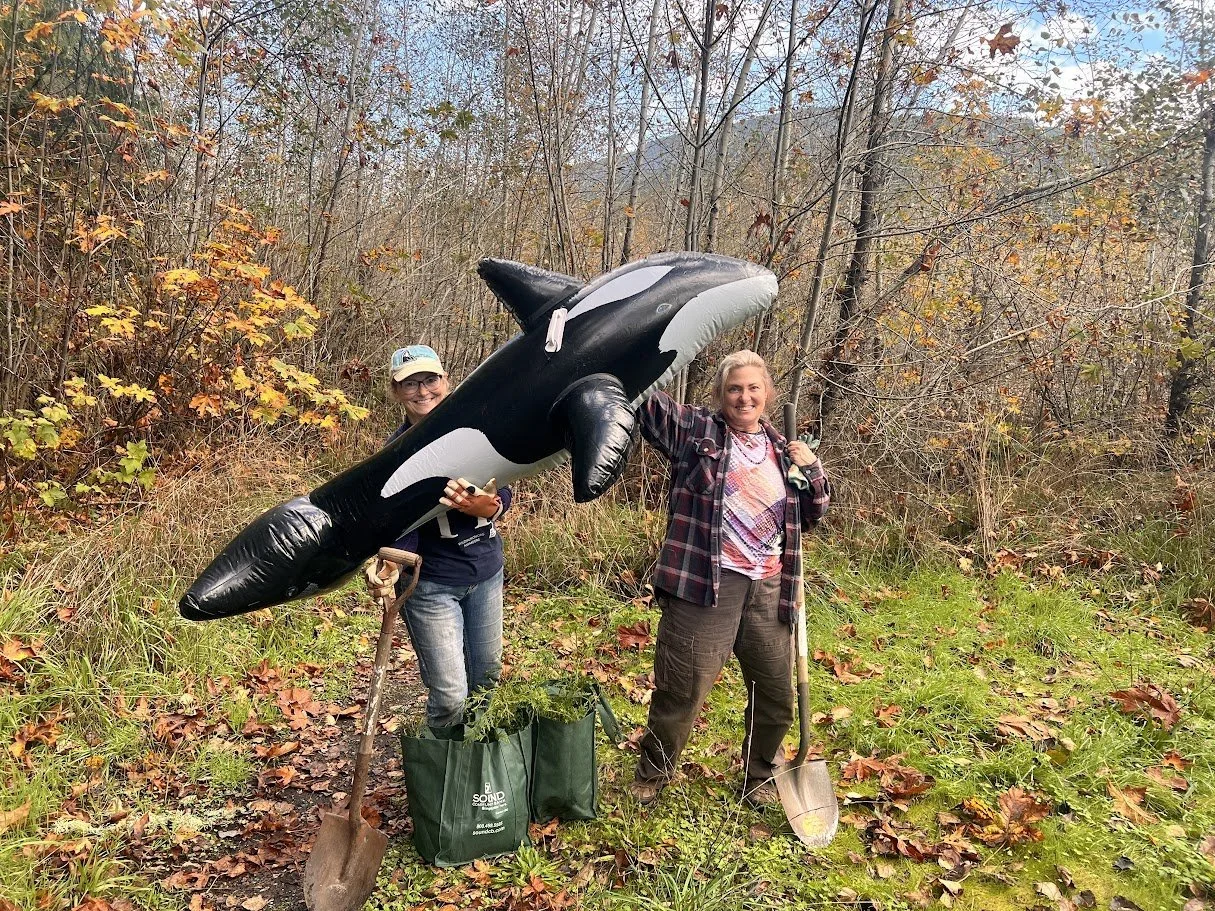
Orca Recovery
Clallam Conservation District (CD) and our community members have joined with other conservation districts to take action, build awareness, and make a difference for Puget Sounds local orca pod, the Southern Residents.
Each October we host a month of action—Orca Recovery Month—when volunteers work together to save our orcas.
Orca Numbers in the Pacific Northwest
The summer of 2020 showed some promising signs of improvement for the Southern Resident Killer Whales (orcas) that call Puget Sound home, however they remain critically endangered due to malnutrition, polluted waters, and stress from boat traffic.
The main threat to local orca whales remains malnutrition due to their primary food source, Chinook (king) salmon, also being endangered. Salmon comprise 80 percent of the orca whale’s diet, so with Puget Sound salmon populations a fraction of what they used to be, orcas are having a difficult time finding food.
Get Involved
Subscribe to the Clallam CD newsletter and follow us on social media (Instagram or Facebook) for updates about the 2025 Orca Recovery Day.
Orca Recovery Month Activities & Accomplishments
Check out what Clallam CD and local community volunteers have accomplished for our orcas!
2024
Two educational events were conducted, a native plant walk and a webinar on installation of log jams on the Elwha River. Two volunteer tree planting events were also held, with the help of our partner the Lower Elwha Klallam Tribe, and over 1,350 trees were planted along the Elwha River to help create salmon habitat.






2023
We teamed up with partners to hold 6 educational and two volunteer events designed to bring awareness to the plight of the southern resident orca whale and aid in salmon recovery efforts since the orca whale’s diet is comprised heavily of salmon.
2022
With our excellent partners, we hosted 5 educational programs and 5 volunteer restoration events throughout the Olympic Peninsula to bring awareness to the plight of the southern resident Orca whale. These events were designed to aid in salmon recovery efforts since the Orca whale’s diet is comprised heavily of salmon.
2021
With our excellent partners, we hosted 3 educational programs and 3 volunteer restoration events throughout the Olympic Peninsula to bring awareness to the plight of the southern resident Orca whale. These events were designed to aid in salmon recovery efforts since the Orca whale’s diet is comprised heavily of salmon. Together we got an amazing amount of restoration work completed.




